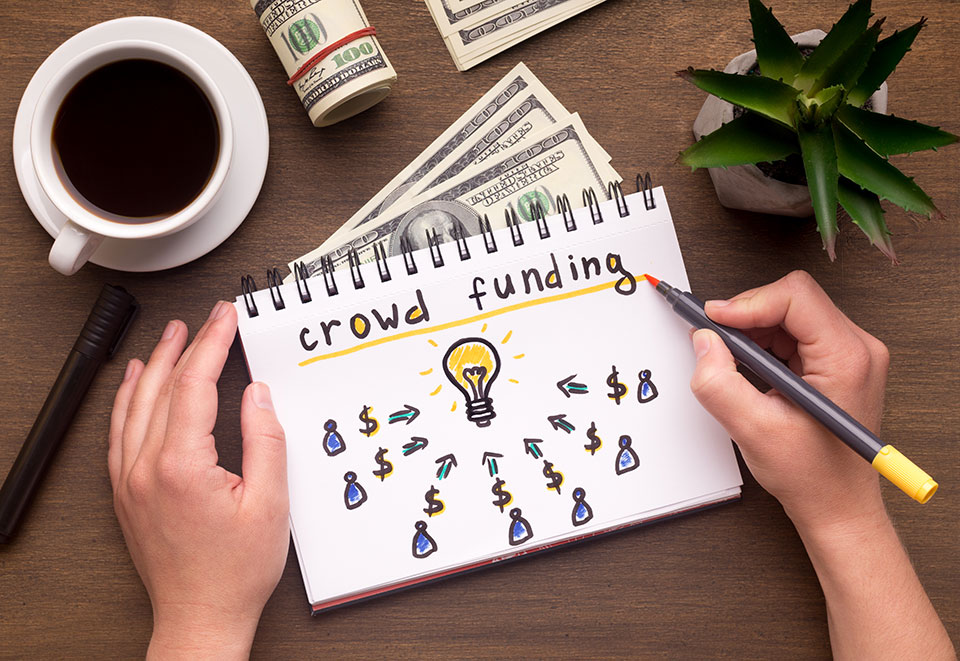How Crowdfunding Could Help Brands Pivot During the COVID-19 Crisis

The onset of COVID-19 has sent brands and consumer behavior into a state of shock. As this new reality continues to take shape, businesses now find themselves needing to adapt, reinvent processes, and stay afloat.
In that scramble, two truths have emerged for businesses. They must:
- Double down on what they do best and show resiliency to survive.
- Identify new opportunities and pivot toward them quickly to adjust to this new business-standard.
Unfortunately, the traditional business route won’t cut it at this time. For example, if a nascent brand doesn’t have a strong e-commerce element, the opportunity to reach online shoppers is nonexistent. Adaptation now will lead to long-term evolution as experts predict the COVID-19 crisis will drag out for months (or even years).
As traditional models sit back, new forms will emerge. Crowdfunding could be an industry that others look to for cues on how to communicate delays, build trust, and weather uncertainty.
COVID-19’s Impact on Crowdfunding Sales
COVID-19’s slew of societal impacts creates marketing and branding challenges most industries have never encountered before. For the crowdfunding industry, it’s experiencing much of the same.
For instance, the month of March historically features several new product launches, but many entrepreneurs delayed their launches to cope with uncertainty. On top of this, there is apprehension in venture capitalists looking to invest in the next big thing.
Tech startups that blossomed out of the wake of the dot-com bust have ridden that VC wave for years, but this sudden recession could finally shift confidence away from traditional strategies and force them to experiment with new growth strategies.
So though the COVID-19 crisis could be changing the face of fundraising for the long term, the conditions for crowdfunding campaigns seem pretty friendly.
We have a global population with increased downtime to scour the internet and look for solutions and ideas to get behind. In fact, our research shows that the average cost per impression is decreasing, meaning there are far more eyeballs looking out for new products.
Although we’ve found that overall online purchasing conversions are down 30% for some, there’s reason to believe that once schedules settle a little, we’ll see a rise in more crowdfunding orders. For example, in the second half of March 2020, Indiegogo’s daily funds were up 24% compared to the same time frame last year — even with fewer campaign launches.
The circumstances of COVID-19 have us all in holding patterns, but brands on the hunt to crowdfund now have an opportunity to turn a captive audience into a captivated one.
Why Crowdfunding Is Poised to Thrive
Crowdfunding itself is a relatively nascent phenomenon. It has yet to survive a massive hurdle like the recession hitting us today. But there are signs that it could weather the incoming storm better than many other industries and provide a boon to marketing departments. Here are a few reasons why:
- It disrupts the norm.
Crowdfunding has the potential to cut through traditional hierarchies, amplify smaller companies, and disrupt larger ones. Although many new releases have been thwarted in their tracks, crowdfunding opens up an opportunity for new inventions, new products, and riskier ideas to get off the ground.This translates to a sea change in marketing: The creatives responsible for building up a narrative around these new brands and releases will cover entirely new territory. On the other hand, those at competitor companies must contend with (and get ahead of) unfamiliar industry players.
- It makes (and keeps) promises.
The crowdfunding model is based on delayed fulfillment, which is a simple marketing and business equation. You pledge today; you receive a benefit in a month’s time. This strategy provides a way for businesses to sell their product and deliver later — a welcome resource for businesses awaiting stimulus aid with no form of cash flow. - It faces an agreeable public.
Right now, consumers are at their most amenable when it comes to handling changes. They’ve accepted that even Amazon might take a little longer to deliver. The crowdfunding industry and the marketers within it are well-versed in communicating a need for clients to manage their expectations, so they’re ready to react to this time of change. - It encourages innovation.
Remember that the crowdfunding model offers safe ways to take creative risks and showcase different kinds of benefits and perks to consumers. Artists now offer performances and paintings, for example, and open restaurants can serve up packaged curbside meals for two. Third Coast Comedy Club even launched an Indiegogo campaign that included buying naming rights to objects in the theater to help keep its doors open through these difficult times. - It builds communities.
Crowdfunding offers the market research and development time that is sorely needed by marketing departments (and companies at large) — all while actively building a community. This will build a diverse network of people who are willing to back you and could become loyal customers even after the dust settles.
Businesses of all shapes and sizes will face worries at this strange and stressful time — that’s not going to go away. But crowdfunding offers a light. A crowd of support increased community, and much-needed eyes on your company’s ideas could be what gets you through the storm.
Written by John Skrodenis. Here’s what you’ve missed?
The World’s Richest Tech billionaires.
World’s Most Stressed-Out Cities For Employees.
World’s Best Destinations For Business Travelers.
World’s Most (And Least) Expensive Cities For Taxis.
Add CEOWORLD magazine to your Google News feed.
Follow CEOWORLD magazine headlines on: Google News, LinkedIn, Twitter, and Facebook.
This report/news/ranking/statistics has been prepared only for general guidance on matters of interest and does not constitute professional advice. You should not act upon the information contained in this publication without obtaining specific professional advice. No representation or warranty (express or implied) is given as to the accuracy or completeness of the information contained in this publication, and, to the extent permitted by law, CEOWORLD magazine does not accept or assume any liability, responsibility or duty of care for any consequences of you or anyone else acting, or refraining to act, in reliance on the information contained in this publication or for any decision based on it.
Copyright 2024 The CEOWORLD magazine. All rights reserved. This material (and any extract from it) must not be copied, redistributed or placed on any website, without CEOWORLD magazine' prior written consent. For media queries, please contact: info@ceoworld.biz
SUBSCRIBE NEWSLETTER









